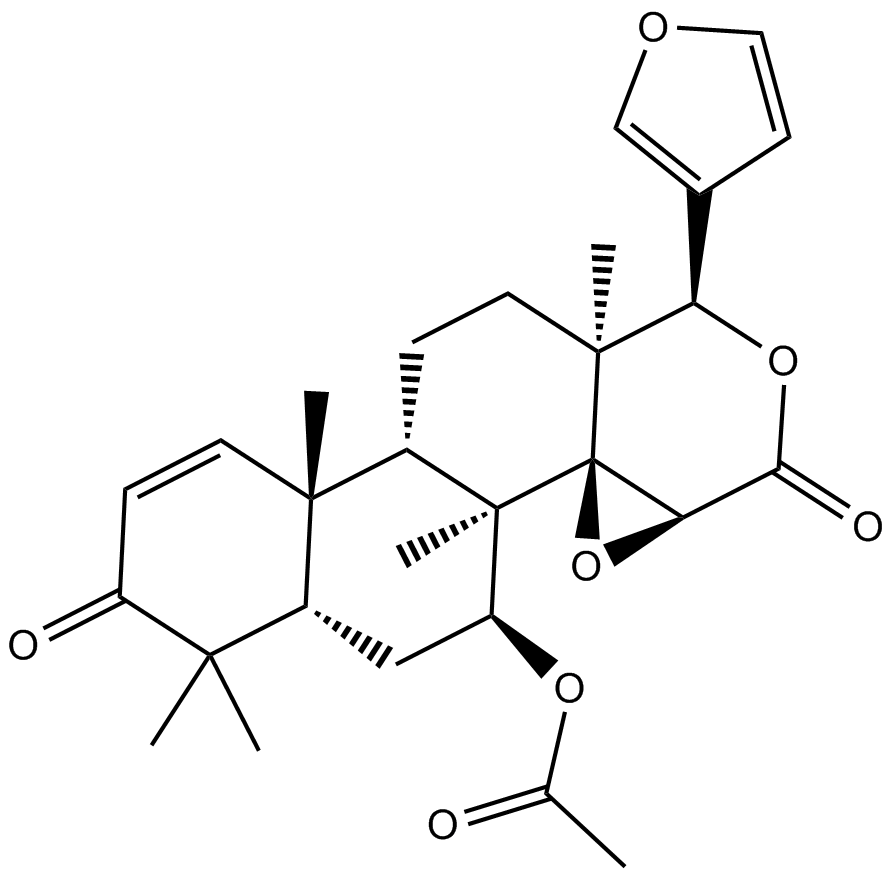Gedunin (Synonyms: NSC 113497) |
| Catalog No.GC10881 |
naturally occurring Hsp90 inhibitor
Products are for research use only. Not for human use. We do not sell to patients.

Cas No.: 2753-30-2
Sample solution is provided at 25 µL, 10mM.
Gedunin, a naturally occurring Hsp90 inhibitor, is tetranortriterpenoid isolated from the Indian neem tree (Azadirachta indica).
Hsp90 (heat shock protein 90) is a chaperone protein stabilizes proteins against heat stress, and aids in protein degradation. Originally, this protein was isolated by extracting proteins from cells stressed by heating, dehydrating or by other means. It also stabilizes a number of proteins required for tumor growth, thereby Hsp90 inhibitors are investigated as anti-cancer drugs.
In vitro, Gedunin induces degradation of Hsp90-dependent client protein and displays anti-proliferative activity in SKBr3, CaCo-2 and MCF-7 cancer cell lines with IC50 of 3.22, 16.8 and 8.84 μM respectively1.
Gedunin treatment was shown to exhibit anti-malarial activity against P. falciparum in parasite development and [3H]-hypoxanthine uptake assays with IC50 values of 0.14 and 3.1 μM respectively 2. Using mouse model, gedunin was demonstrated to present remarkable anti-inflammatory and anti-nociceptive effects on zymosan-induced inflamed knee joints, modulation of different cell populations3.
References:
1. Uddin SJ, Nahar L, Shilpi JA, et al. Gedunin, a limonoid from Xylocarpus granatum, inhibits the growth of CaCo-2 colon cancer cell line in vitro. Phytotherapy research : PTR. 2007;21(8):757-761.
2. Lee SE, Kim MR, Kim JH, et al. Antimalarial activity of anthothecol derived from Khaya anthotheca (Meliaceae). Phytomedicine : international journal of phytotherapy and phytopharmacology. 2008;15(6-7):533-535.
3. Conte FP, Ferraris FK, Costa TE, et al. Effect of gedunin on acute articular inflammation and hypernociception in mice. Molecules. 2015;20(2):2636-2657.
Average Rating: 5 (Based on Reviews and 37 reference(s) in Google Scholar.)
GLPBIO products are for RESEARCH USE ONLY. Please make sure your review or question is research based.
Required fields are marked with *




















